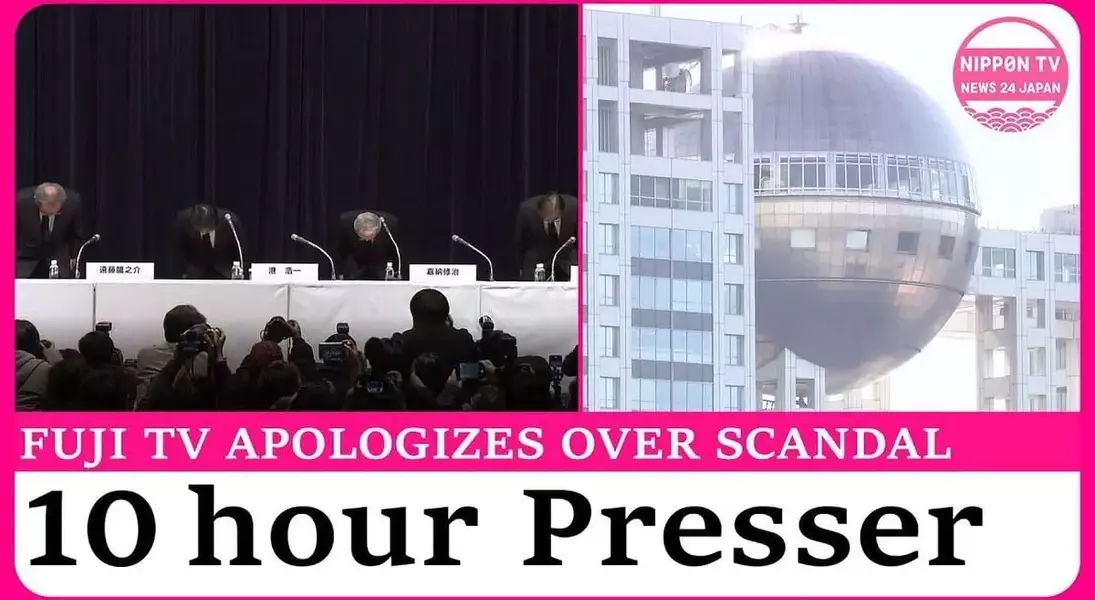
On January 27, 2025, Fuji Television held a second press conference that lasted over ten hours to address mounting concerns about employee involvement in allegations related to former talent Naka Hiroshi. The network faced intense scrutiny as it sought to clarify its stance on the controversies surrounding inappropriate behavior and outline its strategy for handling the fallout. Key figures, including the recently resigned former President Koichi Minato, attended the event. Despite efforts to provide clarity, many observers found the responses unconvincing. The company's leadership acknowledged failures and offered apologies, but questions remained unresolved. The crisis has not only affected public relations but also led to significant changes in corporate governance, with new CEO Kenji Shimizu emphasizing the need for rebuilding trust.
The controversy stems from past allegations against Naka Hiroshi, which have been exacerbated by reports of possible connections between employees and his alleged misconduct. During the press conference, Minato expressed confidence in the company's position, stating that certain employees were not involved in problematic meetings. However, this assertion raised eyebrows, especially given the admission that new information could contradict these statements in the future. Legal expert Kunitaka Kawanishi highlighted significant flaws in the company's approach, noting that the announcements posed more questions than they answered. He emphasized the necessity for comprehensive interviews, particularly with involved female parties, which had not yet occurred.
The extended duration of the press conference and the perceived lack of clarity fueled speculation about the viability of Fuji Television's governance. Journalists demanded accountability, leading to moments of tension during the event. Corporate stakeholders have become increasingly wary, with some sponsors reportedly withdrawing promotional commitments following the turmoil. Industry experts observed that the fallout underscores the need for cultural change within the company. The challenge now lies in thoroughly investigating the issues and communicating transparently to avoid repeating past mistakes.
Moving forward, both Kawanishi and Ueno’s comments suggest that greater scrutiny will continue. The company must rethink its approach to crisis management and ensure that it investigates thoroughly while maintaining open lines of communication. The two-day information session served as an acknowledgment of past shortcomings and guidance for future protocols. As Fuji Television navigates these challenging waters, the path to recovery will require hard work, concrete responses, and potentially cultural shifts within its organizational framework. Re-establishing credibility will be essential as the network strives to adapt and commit to change, ensuring transparency and responsiveness to both talent and audience alike.
